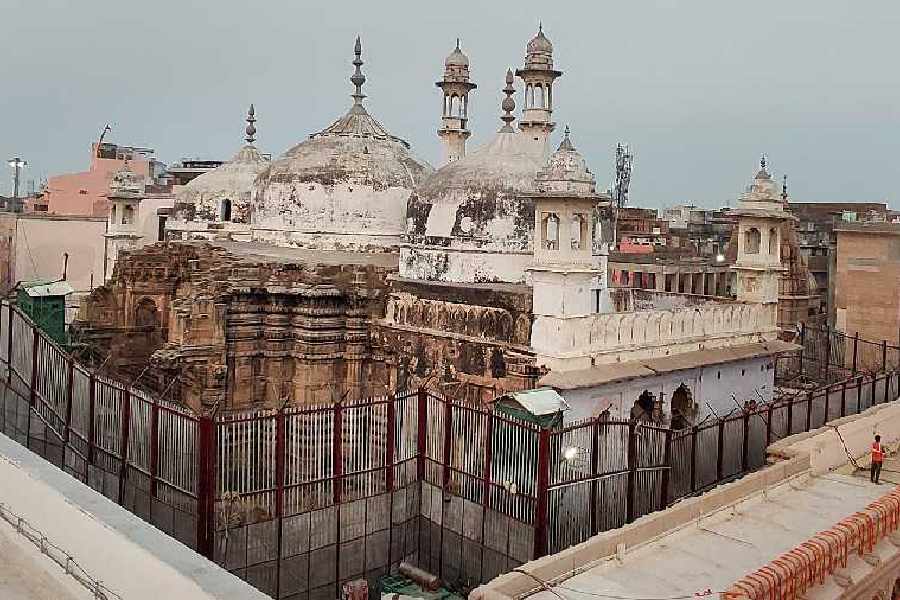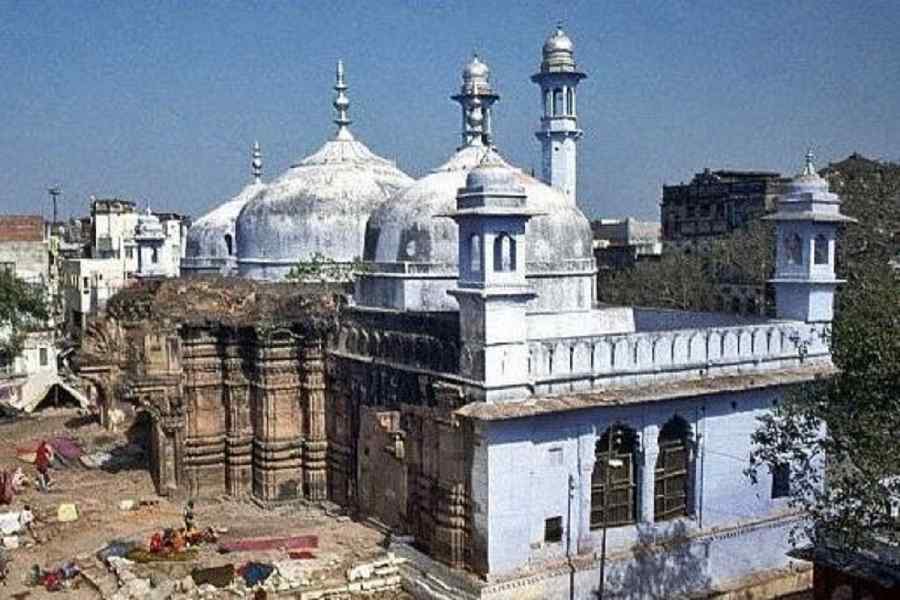The Supreme Court on Friday refused to stay the Allahabad High Court order allowing the ASI to conduct a scientific survey at the Gyanvapi mosque complex to determine if the 17th century structure was built upon a pre-existing temple, notwithstanding the assertion by the Muslim side that the exercise will "reopen wounds of the past".
A bench comprising Chief Justice D Y Chandrachud and Justices J B Pardiwala and Manoj Misra, however, asked the Archaeological Survey of India (ASI) not to take recourse to any invasive act during the survey.
The bench took note of the submissions of Solicitor General Tushar Mehta, appearing for the ASI and the Uttar Pradesh government, that no excavation will be carried out during the survey nor any destruction caused to the structure.
"It is clarified on behalf of the ASI, represented by the solicitor general, that as a matter of fact, the entire survey will be completed without any excavation at the site and without causing any destruction to the structure," the bench said.
"The order of the learned trial judge passed under Order 26 Rule 10A of the CPC (Civil Procedure Code) cannot be prima facie at this stage to be said as without jurisdiction," the bench said.
The top court said the evidentiary value of the scientific survey of the ASI was open to be tested in the lawsuit and is open to objections, including cross-examination.
Consequently, the report of the ASI, by itself, does not amount to determination of the matters in dispute.
"Having regard to the nature and ambit of Court-appointed commissioners, we are unable to differ with the view of the High Court...,” it said.
The apex court bench ordered the survey to be carried out through "non-invasive" processes.
The report of the ASI will be remitted to the trial court and the decision on that will be taken by the district judge, it said.
During the hearing, Muslim body Anjuman Intezamia Masjid committee said the ASI survey at the Gyanvapi mosque intends to go into history and will "reopen wounds of the past".
Senior advocate Huzefa Ahmadi, appearing for the mosque management committee, contended before a bench headed by Chief Justice D Y Chandrachud that the exercise by the Archaeological Survey of India (ASI) is "digging into history", violating the Places of Worship Act and impinging upon fraternity and secularism.
"You can't oppose every interlocutory order on the same ground and your objections will be decided during the course of hearing," said the bench.
"The ASI survey intends to go into the history as to what happened 500 years ago. It would reopen wounds of the past," Ahmadi said, voicing displeasure over the survey ordered by the Allahabad High Court.
Ahmadi said the survey violates the Places of Worship (special provisions) Act, 1991 which prohibited change of character of religious places as they existed in 1947.
The apex court is hearing pleas by the mosque committee against the Allahabad High Court order permitting an ASI survey at the Gyanvapi mosque.
The high court had on Thursday dismissed a petition filed by the Gyanvapi committee challenging a district court order directing the ASI to conduct the survey to determine if the mosque was built upon a pre-existing temple. It said the district court order was "just and proper", and no interference from HC is warranted.
The same day, the mosque panel moved the top court against the high court order.
Hours after the high court judgement, advocate Nizam Pasha mentioned the matter before Chief Justice D Y Chandrachud, who was heading a five-judge constitution bench hearing arguments on challenge to the abrogation of Article 370 and was rising for the day, seeking an urgent hearing.
One of the parties from the Hindu side has also filed a caveat in the apex court saying no orders be passed without hearing them in the matter.
The Varanasi district court had on July 21 directed the ASI to conduct a "detailed scientific survey" -– including excavations, wherever necessary -- to determine if the Gyanvapi mosque located next to the Kashi Vishwanath temple is built upon a temple.
The mosque's 'wazukhana', where a structure claimed by Hindu litigants to be a 'shivling' exists, will not be part of the survey following an earlier Supreme Court order protecting that spot in the complex.
Hindu activists claim a temple existed earlier at the site and was demolished in the 17th century on the orders of Mughal emperor Aurangzeb.
Except for the headline, this story has not been edited by The Telegraph Online staff and has been published from a syndicated feed.











